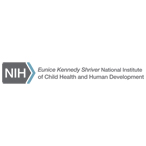Researchers funded by the National Institutes of Health have discovered how an embryo initially attaches to the wall of the uterus-what appears to be one of the earliest steps needed to establish a successful pregnancy.
News
NICHD issues News Releases and Media Advisories to the news media. Spotlight and Research Feature articles explain NICHD research findings and public health issues to the general public. An Item of Interest is a short announcement of relevant information, such as a notable staff change.
Multiples Born to Older Moms Fare Same as or Better than Those Born to Younger Moms
In contrast to the pattern seen with singleton births, twins born to older mothers do not appear to have a greater risk of birth complications than do twins born to younger mothers, according to a recent study by researchers at the Eunice Kennedy Shriver National Institute of Child Health and Human Development (NICHD) and the University of Kansas.
NICHD Funded Researchers First to Genetically Modify Non Human Primate
Researchers funded by the Eunice Kennedy Shriver National Institute of Child Health and Human Development (NICHD) and the National Center for Research Resources of the National Institutes of Health have completed the first successful effort to introduce a new gene into the unfertilized eggs of rhesus monkeys, a member of the family of mammals that includes human beings.
Gates Foundation & NIH Fund Global Network for Women & Children's Health Research
The Bill and Melinda Gates Foundation and the Eunice Kennedy Shriver National Institute of Child Health and Human Development (NICHD) jointly will support an international research network to improve the health of women and children throughout the world.
Researchers Identify Risk Factors for Preeclampsia in Hypertensive Women
Having high blood pressure for at least four years before getting pregnant increases a woman's chances of developing the dangerous condition known as preeclampsia, according to a study published in the September 3 issue of The New England Journal of Medicine.
First Trimester Screening for Down Syndrome Possible, NICHD-Funded Study Finds
The first large scale study of its kind shows that effective screening for Down syndrome is possible before the 14th week of pregnancy--earlier than previous screening regimens have permitted, according to a study appearing in the April 2 New England Journal of Medicine.
NICHD-Funded Researchers Find Possible Mechanism of Preeclampsia Disorder of Pregnancy Attributed to Placenta Irregularity
A team of investigators has discovered that preeclampsia--a life threatening complication of pregnancy--results from a failure of the placenta to invade the wall of the uterus and to appropriately mimic the tissue which lines blood vessels. The finding has important implications for the diagnosis and treatment of this sudden, mysterious, and potentially fatal disorder of pregnancy.
 BACK TO TOP
BACK TO TOP
